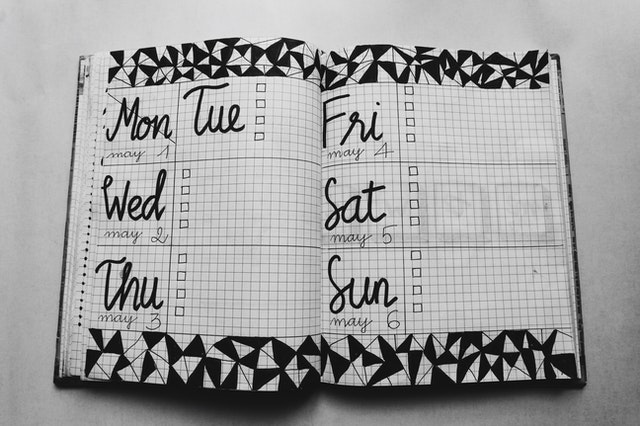
There is no more universally-accepted principle in the writing world as two simple words: "Writers write."
No matter what we agree on, or disagree on, the one thing that is never up for debate is that sentence. You can't be a writer and not be writing. It just doesn't fit. If you say you're a writer, that means you are, at some point, putting your fingertips on the keyboard or grabbing the pen and putting words and sentences together.
There's great beauty and comfort in that. If you want to consider yourself a writer, there is no method of qualifying yourself. There are no gatekeepers to the title of "writer." You want to be an orthopedic surgeon? You need a bunch of education and licenses, and eventually you can earn the title.
By contrast, you can sit down at your computer, open a Google Doc, and type out, "Jim walked into the pet store, where the unflinching aroma of cat urine seeped into his nose." Congratulations! You are now a writer.
Because there are no gatekeepers, it's easy to be a writer. That's great, but it's also a roadblock. No gatekeepers means no process.
See, in the process of getting certified to be an orthopedic surgeon, you also learn how to be one. They teach you all the ins and outs of the human anatomy and you take copious tests so that, when you start the job, you will ideally be prepared to the best of your ability.
There are classes out there to learn how to be a writer, but you don't really learn to be one until you start cranking out words. It's the ultimate learn-by-doing occupation... so how do you learn to write?
I've been a writer of sales letters, marketing materials, and books (both fiction and non-fiction) for 12 years. The best way I've learned how to tackle these projects has been to write every day.
Yes, a daily writing habit is one of the best, most useful activities you can master. And there's good reason for it!
The benefits of a daily writing habit
Some might argue that a daily writing habit simply isn't necessary to be a great writer. And they're right – there are no gatekeepers, remember? Someone who writes one piece of prose can lay claim to the title.
But if you want to be a good writer, a daily writing habit really can lead to outsized gains in your ability and talent. Why is that?
- Practice, practice, practice. Even though it sure seemed like it at the time, Michael Jordan did not come out of the womb knowing how to dunk a basketball. The guy didn't make varsity in high school at first. That wasn't because the coach was an idiot. It's because the Greatest Basketball Player in History (not LeBron, I welcome your hate mail) wasn't developed yet. He was just a sophomore who was good at basketball but needed more practice. As a writer, you have to put in the reps, too. You have to master the layup and shoot a few thousand free throws before you can expect to be a star player. By creating a daily writing habit, you are creating a framework for you to put in those reps.
- Build a little momentum. I don't know about you, but I'm a momentum guy, through and through. When I am working on a particular story, the most important thing I can do is spend at least a little time every day on it. If I take time off, it takes forever for me to get back into the flow. If you prioritize your daily writing, you keep those wheels moving, and forward progress can carry you forward.
- Develop a body of work – and a voice. You know what makes you really feel like a writer? Having a stash of articles, blog posts, stories, and books stored on your computer somewhere. It's a tangible result that breeds confidence. And as that body of work grows, so does your unique voice. Everyone has one, but you have to write to get it out.
If you are on the edge of your seat, nodding your head vigorously and waiting for instructions because you're so eager to start your own daily writing habit, then read on...

How to build a daily writing habit
There are no rules when it comes to writing every day – except of course, "No kicks to the groin, home for dinner."
So you can build a habit however you want. Want to write for an hour? Work on that masterpiece? Rock on! More interested in shorter exercises to develop particular aspects of your writing ability? Go for it. Public or private? Up to you!
Here are a few ideas that you can use for building a daily habit:
- Write a blog post every day. Post it on Medium or on your own blog. Daily Medium posts have long been considered a great way to build a following from scratch.
- Write a journal entry every day. This would be more private, but no less effective. Either write what's on your mind or find a book of writing prompts (there are approximately four billion of them out there).
- Do ten minutes of freewriting. One of my favorites because I think freewriting is such an underutilized tool in the writer's arsenal. Stream-of-consciousness writing on a daily basis can be one of the most powerful habits you can build.
- Write one page of fiction. Struggling to get that novel finished? One page per day can knock out a really solid novel in one year. Small progress breeds success!
- Write a short story. Back to those writer prompts. Set yourself some parameters to tell an intriguing story in as few words as possible. Heck, many have made a living just by publishing short stories.
- Make something up. Don't like these ideas? Come up with your own! The most useful habit is the one you'll stick to. Just write something every day, and you'll see your abilities start to flourish.
Oh, and one last tip...
Track it
If you're not tracking it, you're not improving it.
Building a habit is hard work, and it's essential that you make sure your progress is consistent. Missing a day once or twice isn't a bad thing. You're only human. But it's far too easy to let it slide a little bit and wake up one day realizing, "Oh, hey, I haven't done my daily writing in seven and a half weeks."
Don't let it come to that.
For me, the most useful tool has always been a wall calendar with every day of the year in one view. Maybe you'd prefer a habit tracking app or a notebook. It doesn't matter.
All that matters is that you find a place to record, "Yep, I did my daily writing today!"
Stack those wins, build that momentum, and watch your writing go through the roof.



